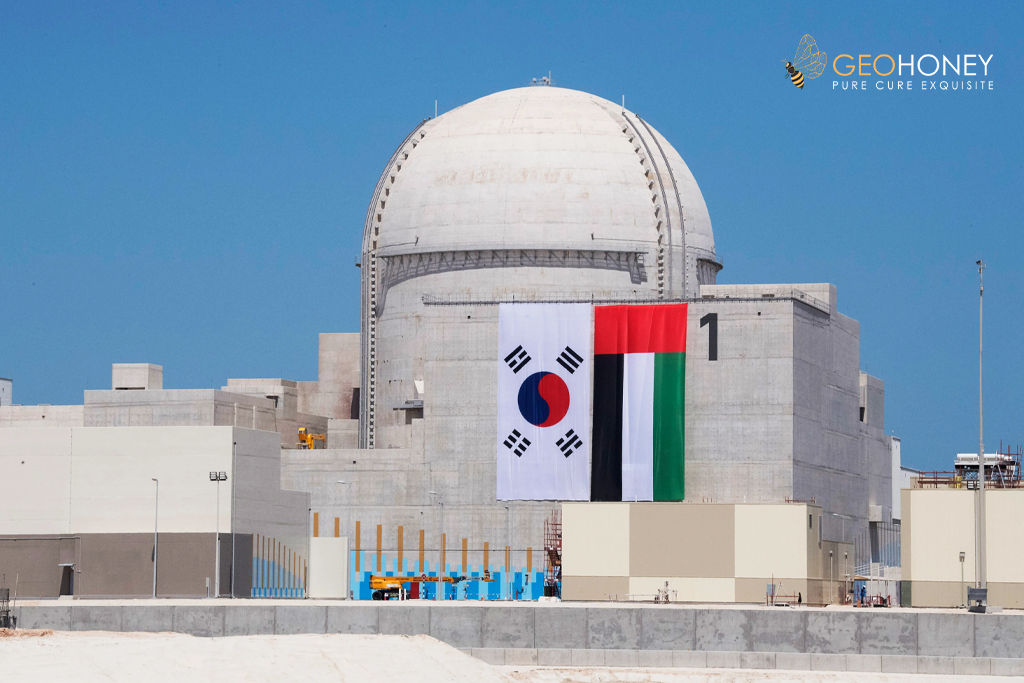- Tokyo: 14:35
- Singapore: 13:35
- Dubai: 09:35
- London: 05:35
- New York: 00:35
UAE uses nuclear power to combat climate change and share its experience

UAE is a hot place to live in. During summers the Temperature remains above 40 degree Celsius and sometimes even exceeds the mark of 50 degree. The climate change is making the situation even worse. About 10 million people live in UAE and they are categorized as one of the most venerable to the impact of climate change. In addition to this the people are exposed to rising temperature, droughts, lesser rainfall, rising sea level etc. In order to keep the country a habitable place, the issue of climate change needs to be addressed with in time.
UAE is already making efforts in this direction. Like it is reducing its carbon footprints in energy sector by switching towards nuclear energy. In cooperation with IAEA, it is helping other countries to follow the same path.
The journey started in 2007 when UAE decided to launch its own nuclear program for civilian purpose. The construction of nuclear reactor based on South Korean design began in 2012. The site chosen for the nuclear plant was Barakah, 300 km west of Abu Dhabi. Within eight years of its construction, the plant was connected to the grid. This was the first nuclear power plant in the entire Arab world.
Francois Foulon, Professor, Chair of Nuclear Engineering and Director of the Emirates Nuclear Technology Center at Khalifa University said “Many countries are pursuing new nuclear power program, but the UAE is special in successfully kick-starting a program and realizing commercial nuclear energy in such a short time, with all of the safety standards and regulations we expect today,”
Khalifa University has designated an IAEA Collaborating Centre for nuclear energy infrastructure and human resources since 2017. Here the experts from other countries can visit and learn from the experience of UAE
Foulon explained: When the UAE embarked on its nuclear program, it started with limited infrastructure and capabilities: very few nuclear engineers, no nuclear experience, nuclear legislation nor comparable role models for such a large project. The country has had to build almost all of this from scratch. The IAEA helped along the journey, so now the country is giving back and sharing its experiences to help others realize their nuclear power ambitions.”
The reason behind choosing the nuclear power has been its reliability, 24 x 7 availability and low carbon emission. Foulon said. Low carbon nuclear power is critical for the country as it pursues a 2050 ‘net zero’ strategy that aims for 14 giga watts of clean energy capacity by 2030.
At present Barakah power plant is contributing with its two units functioning, third one in process of starting and the fourth one in final steps of its commission. Once all four units get functional, they will be contributing almost a quarter of the UAE’s energy requirement. The Emirates Nuclear Energy Corporation (ENEC) expects the plant to produce up to 5600 megawatts of electricity that would be enough to power 574 000 households in the country for a whole year. This will prevent the release of 22.4 million tons of carbon emission annually, something that 350 million trees will absorb in 10 years. This is also equivalent to a quarter of the UAE’s emissions reduction pledge at the United Nations climate conference, COP26, in 2021.
Today about 30 countries are showing their interest in harnessing the nuclear power. UAE with its Collaborating Centre at Khalifa University is helping some of these countries in doing so. Over the years, the Collaborating Centre has organized numerous training events, including a course on nuclear education and human resource development for nuclear embarking countries such as Malaysia, Saudi Arabia and Viet Nam. In 2023, the country will be in the global spotlight as it hosts COP28 in Dubai.
“As the global climate crisis worsens, the need for new nuclear power is growing.
The world can learn from the lessons of the UAE and ensure a decarbonized future.”




Middle Eastern countries are moving out of the shadow of instability and proceeding on the road of development.
It's essential to our response to climate change and greenhouse gas emissions.
Finally, It is inexpensive it is generally considered to be the safest and most efficient energy source for generating electricity.
WoW!!!! what an amazing one, Thank you UAE for making this effort.
Glad to see that middle eastern countries are also making great progress in nuclear technology field. Proud to be part of UAE, as it became the first Arab country to achieve a nuclear power plant